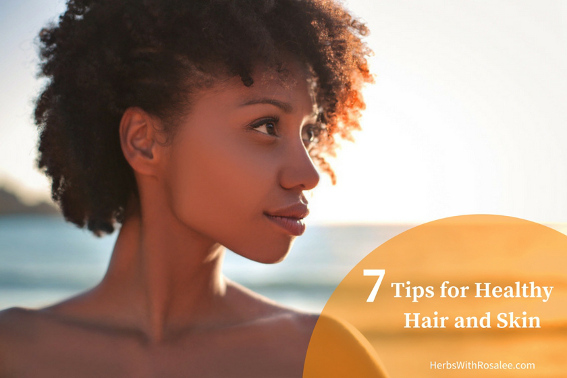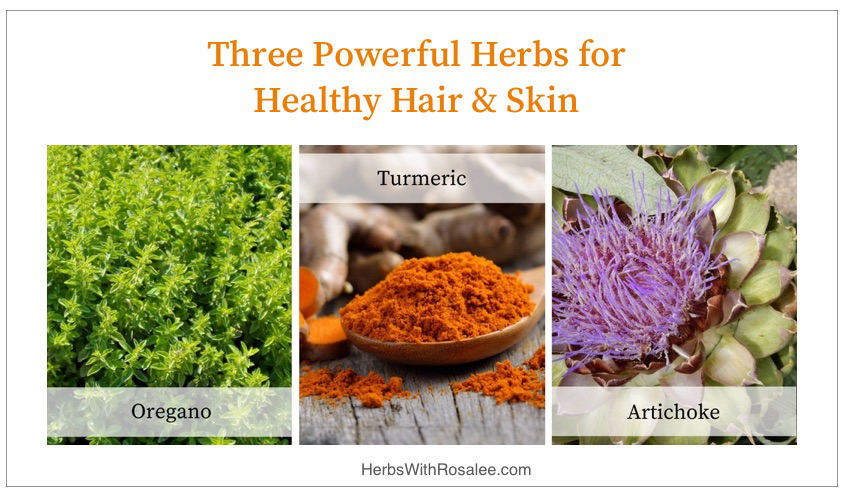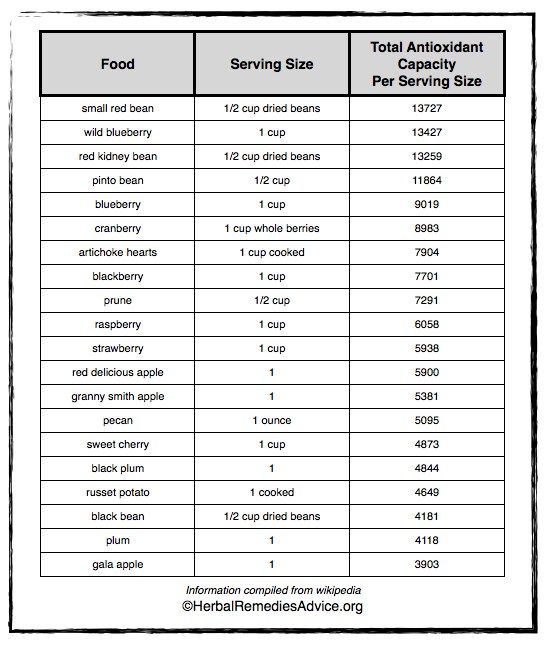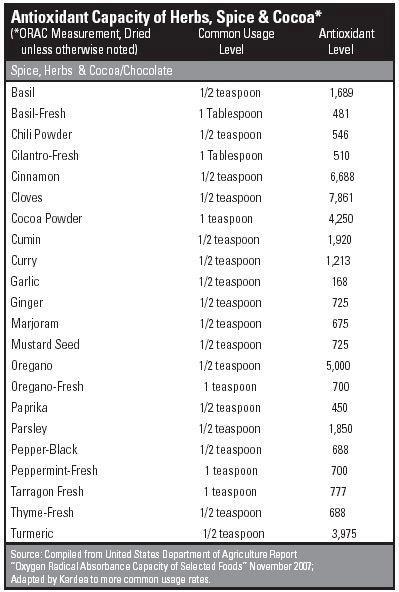Get weekly tips, recipes, and my Herbal Jumpstart e-course! Sign up for free today.

Integumentary System
Share this! |
|
The human integumentary system is made up of your skin, nails, hair and some glands. Unlike other systems of the body, such as the cardiovascular system or digestive system, this is a part of our body that we outwardly show to the world. Health problems that show up in the integumentary system are often-times broadcasted to the world, which is why diseases of this system can be so emotionally difficult. Sure, you can get creative, but it is difficult to hide all your skin (in the case of a rash) or hide your hair (in case of hair loss or even dull hair) or hide your nails (in the case of brittle nails).
When you have a problem that shows up in your external body it is easy to assume that it is an external problem that needs to be treated topically, like putting steroid cream on a rash or getting the latest and greatest shampoo to boost your hair health.
However, most of the problems in the integumentary system are actually internal problems. So treating them only with topicals can suppress symptoms without getting to the root cause of the problem.
This article is going to look at various ways you can support integumentary system health from the inside out. We’ll look at the underlying causes of problems that frequently occur in the human integumentary system and what you can do to prevent those problems by addressing the root problem.
You can also review basic integumentary system functions in this article.
1. Maintain Healthy Digestion (especially avoid constipation)
Most of the time that I work with someone who has a problem with rashes on the skin, they also concurrently have digestive problems. In fact, from a traditional herbal perspective, the underlying causes of a lot of rashes and skin problems are related back to the liver and to the digestive system. The digestive system and the skin are two major systems of elimination. If the digestive system is backed up, it tends to show on the skin. In this case, it is very difficult to only treat the problem topically (e.g., with steroids) when the real problem is in the sluggish digestive system.
Maintaining a healthy digestive system also means that you assimilate the nutrients you take in, which then are used to maintain the health of the integumentary system. When your body gets the correct skin vitamins and nutrients your skin truly does shine!
2. Avoid Chemicals in Standard Cleaning Products and Beauty Care Items
It boggles my mind how many people are still using standard cleaning products, many of which contain harsh chemicals that we know cause serious problems to our personal health and to our environmental health.
Many of these chemicals can wreak havoc on our endocrine system and disrupt our hormones. Harsh chemicals can also cause rashes and other contact irritations of the integumentary system.
Get to know your cleaning products and your health and beauty products (soaps, shampoos and make-up). Read the ingredients! I avoid anything that isn’t 100% natural. In another article I discuss some of the worst chemicals and how they effect the endocrine system.
You can easily make many of your own household cleaners and personal beauty products. These are often higher quality than anything you can buy and a heck of a lot cheaper too!
Vinegar works really well as a multi-purpose cleaner. Here’s my recipe for a vinegar cleaner.
Also you can make many of your own beauty care products.
3. Antioxidant Foods and Herbs
Antioxidant foods and herbs nourish and protect the human integumentary system. Antioxidant foods are essentially foods for healthy skin and foods for healthy hair. Want glowing skin? Eat antioxidant foods and herbs. Want shiny voluminous hair? Eat antioxidant foods and herbs.
Antioxidants reduce free radical damage that happens in your body due to natural metabolic functions. Free radical damage is seen at the root of many chronic diseases and is responsible for premature aging.
The best part is that antioxidant foods and herbs are easy to consume in large amounts. Basically all you have to do is eat nutritious food.
Below you’ll find two tables listing antioxidant foods and antioxidant herbs. To get the most out of your food and herbs be sure to get the highest quality possible by eating fresh food, in season and organically grown. Herbs can also be fresh and in season, but often times drying them properly can increase their antioxidant levels.
4. Foods for Healthy Hair
We’ve been conditioned by clever marketing that the health of our hair is determined by the brand of our shampoo and conditioner. This is blatantly not true!
The health of our hair is determined by many factors, most of them internal. The nutrients you take in (e.g., healthy foods), combined with your body’s ability to assimilate those nutrients (strong digestion), play a much more powerful role in the health of your hair.
Foods for healthy hair include foods high in antioxidants (see above) as well as foods high in magnesium and calcium. Leafy greens such as kale and chard and full fat dairy products (organic!) are all foods for healthy hair.
5. Nutrients to Avoid Brittle Nails
Brittle nails are a common complaint of the integumentary system. Like many of the diseases of the integumentary system, brittle nails are simply a sign of an underlying problem.
Brittle nails can be a sign of anemia or hypothyroidism. It’s a good idea to rule either of these out by getting some tests done at your yearly physical with your doctor.
Brittle nails can also be a sign of poor nutrition. Again, the foods you eat AND your body’s ability to assimilate those foods can mean the difference between healthy strong nails and brittle nails.
Nettle infusions, made by steeping 1 ounce of stinging nettle leaf in a quart of water overnight, are a wonderful way to restore health to brittle nails. Stinging nettle leaf is high in the nutrients needed for healthy nails such as magnesium, iron and calcium. It also supports thyroid function and can support healthier iron levels in someone with anemia.
6. Maintain Optimum Levels of Vitamin D3
Vitamin D3, which also acts like a hormone, is essential to the health of the integumentary system. It is also important for preventing skin diseases and skin infection. Vitamin D3 is undoubtedly one of the most important skin vitamins.
Here’s a summary of the important functions of Vitamin D3
:
- Vitamin D3 plays an essential role in overall health.
- Vitamin D3 is crucial for skin protection and for skin rejuvenation.
- Optimal amounts of vitamin D3 give your skin the ability to have proper skin cell growth and skin repair. This strengthens your skin’s immune system and helps to prevent premature aging.
7. Avoid Excessive Stress
Stress wreaks havoc in many areas of our health. It can disrupt digestion, cause anxiety attacks, and prevent restful sleep. It should probably come as no surprise, then, that stress can have negative effects on the health of our skin.
Do you notice that you get skin rashes in times of stress? That your eczema flares up when you work long stressful hours at work? It’s not a coincidence! There are actually researchers and medical professionals who specialize in psychodermatology, or the study between stress and diseases of the skin.
If you have a lot of stress in your life it will most likely take a well-rounded approach to change your relationship to stress.
Re-prioritizing your life to include more rest and nourishment is a good first step.
Adaptogen herbs can help support your body’s response to stress.
Yoga, Tai Qi, Qi Gong and meditation are wonderful practices that can be practiced daily for stress reduction.
Time spent in nature is one of my favorite ways to relax and reduce stress. A walk in the neighborhood or through the local park is a great way to get exercise (which also reduces stress) and enjoy nature.
Summary
Our skin, hair and nails are an outward expression of our internal health. If you are having health issues with the integumentary system, then address the root cause of the problem for real, long-lasting health!
Explore Diseases of the Integumentary System

Rosalee is an herbalist and author of the bestselling book Alchemy of Herbs: Transform Everyday Ingredients Into Foods & Remedies That Healand co-author of the bestselling book Wild Remedies: How to Forage Healing Foods and Craft Your Own Herbal Medicine. She's a registered herbalist with the American Herbalist Guild and has taught thousands of students through her online courses. Read about how Rosalee went from having a terminal illness to being a bestselling author in her full story here.



